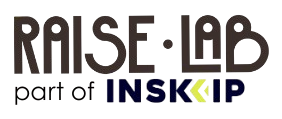CDC Habitat

Background and needs
To quickly adapt its housing stock to climatic hazards (increase in temperatures, recurrent episodes of drought and the intensity of heat waves), the CDC Habitat group seeks to source a panel of innovative solutions that meet the challenges of thermal efficiency, costs and large-scale deployment to improve the summer comfort of its users.
Actions and deliverables
- Identification of startups based on these criteria in order to carry out experiments quickly
- Exchanges with the most relevant companies
- Qualification of innovative solutions
Results
Following the conduct of research on the basis of these criteria, exchanges with the most relevant companies and the qualification of solutions, RaiseLab identified around thirty startups and organized exchanges with 8 pre-qualified startups in areas such as:
- deployment on the roof (painting, greening, etc.)
- deployment on the facade (cladding, glazing, etc.)
- phase change paint
- innovative coolers, air conditioners, fans (low carbon)
- The heat pump
This open innovation approach allowed CDC Habitat to collaborate with two startups as part of the Sunroof project on the issue of albedo with the application of reflective paints and roof coatings to reduce heat islands and improve the summer comfort of tenants.
“Committed to an approach to improving the resilience of the territory in the face of climate change, these projects co-developed with startups with the help of RaiseLab, make it possible to contribute to the resilience of urban ecosystems and, more generally, of the cities themselves. These experiments with reflective roof paints, in Occitanie and PACAC, are the result of the Group's Open Innovation approach and aim to strengthen innovation to adapt residences and change the behavior of tenants (no use of air conditioning).” Clotilde Saint Hilaire, Director of Mission Innovation at CDC Habitat.
Ignite transformation throughout your organization
We make corporate innovation easier.
We drive innovation within your organization by finding startups and technology partners that fit your needs.
